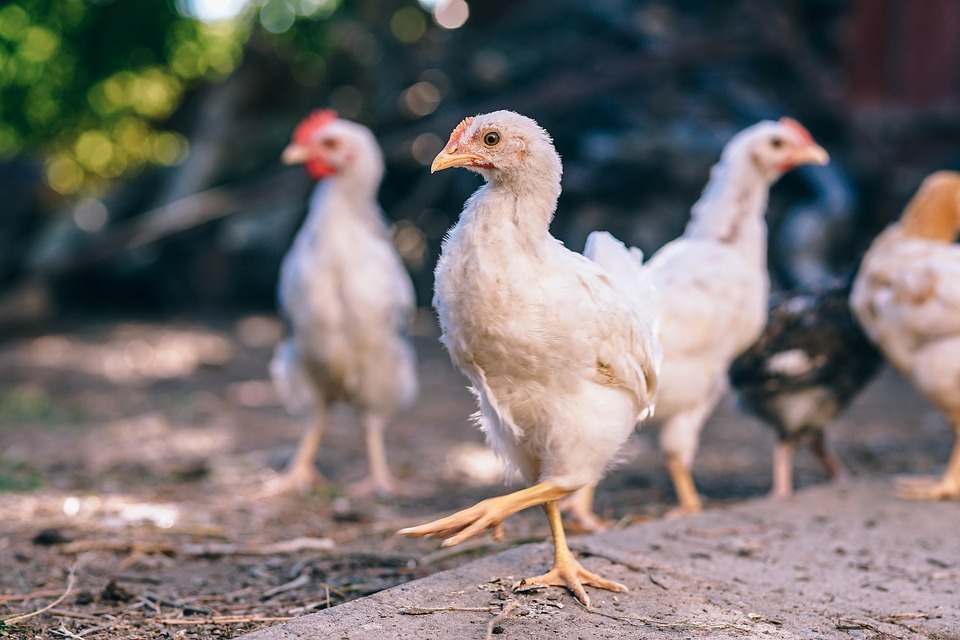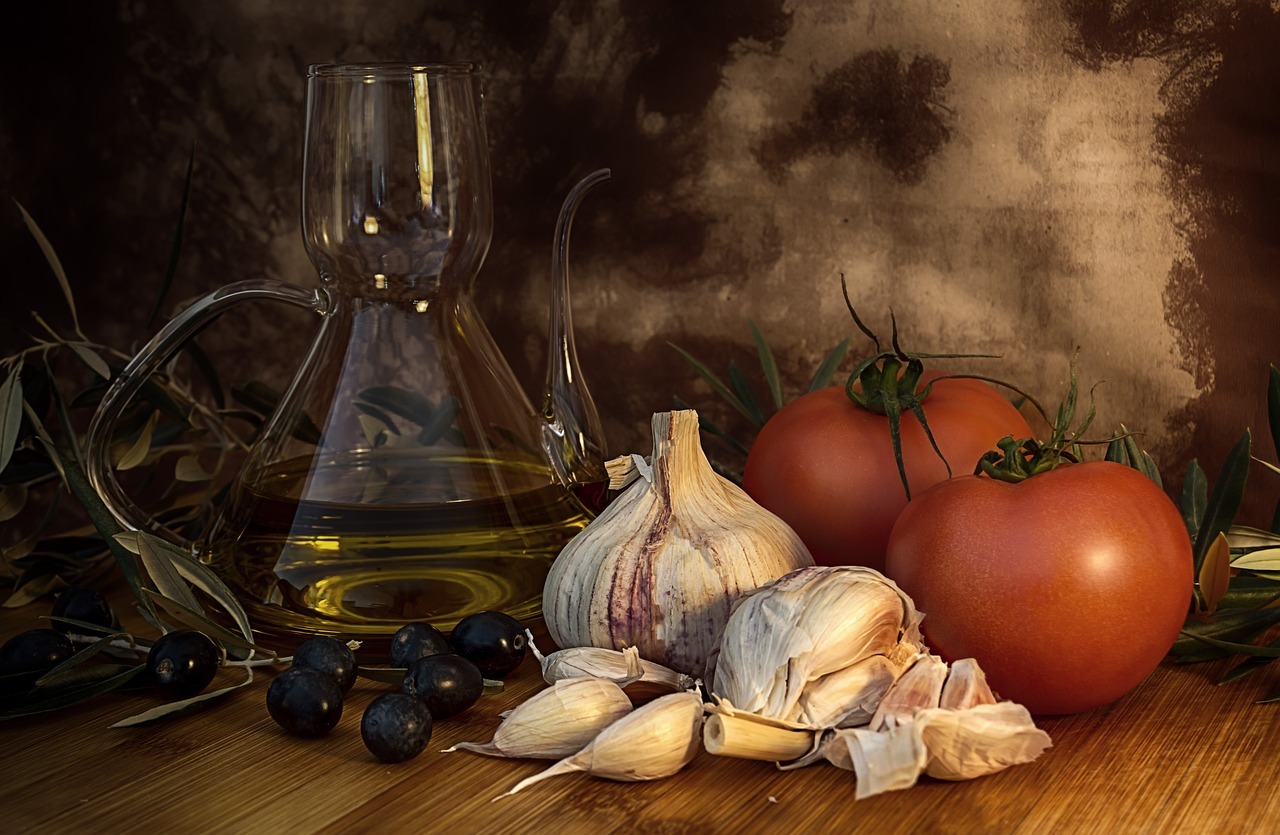What to Feed Chickens When You Run Out of Chicken Feed
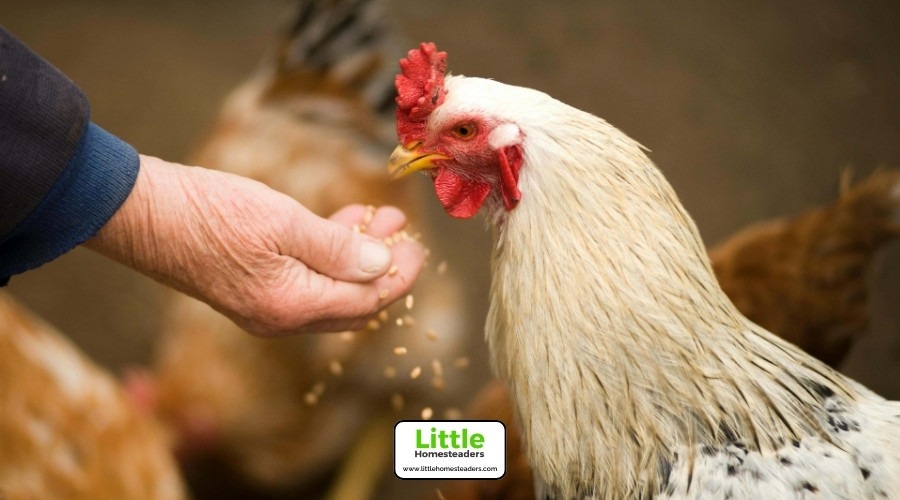
Picture this: You walk out to the chicken coop, ready to feed your flock, only to realize the feed bin is empty. Panic sets in, but it doesn't have to. Chickens are resilient creatures with diverse dietary needs that can be met with items you likely already have at home or in your backyard. Here's how to keep your flock happy and healthy until you can restock their feed.
Kitchen Scraps
Chickens are nature's recyclers, happily eating many of the food scraps you'd otherwise throw away. Leftover rice, pasta, cooked vegetables, and even small amounts of cooked meat can provide excellent nutrition. Cooked eggs are another favorite, offering a protein boost that chickens love.
Safe Kitchen Scraps to Offer:
- Carbohydrates: Rice, bread (in moderation), and plain pasta. These provide the energy chickens need for their daily activities.
- Vegetables: Carrot tops, broccoli stems, zucchini, and pumpkin are nutritious and easy for chickens to digest.
- Protein: Scrambled eggs, bits of cooked chicken, or other meat scraps (avoid fatty or seasoned meats).
To ensure safety, avoid giving your chickens moldy food, citrus, onions, or avocado. These can harm their digestive systems or make them sick. If you're not sure about a specific item, it's better to leave it out.
Pro Tip: Build a network. Ask neighbors or local restaurants for food scraps they'd otherwise toss. This reduces food waste and creates a sustainable chicken feed supply chain. Just make sure the scraps are safe for chickens.
When using kitchen scraps, remember moderation is key. These should complement a balanced diet, not replace it entirely. Remove uneaten portions promptly to avoid attracting pests or letting mold develop. If your chickens don't finish it, toss the scraps into your compost pile to keep your garden happy too.
Foraging and Natural Food Sources
If you've got a backyard, you have a buffet for your chickens. Free-ranging allows them to scratch for insects, seeds, and plants, providing excellent nutrition and entertainment.
Encouraging Foraging:
- Let your flock roam in areas with diverse vegetation. Chickens love hunting for bugs, worms, and small seeds.
- Grow chicken-friendly plants like comfrey, kale, and clover. These are nutritious, easy to cultivate, and provide a steady supply of greens.
- Use garden waste to supplement foraging. Chickens will happily eat grass clippings, pulled weeds, and leftover vegetable tops.
Creating a Foraging-Friendly Environment:
- Rotate grazing areas to prevent overgrazing and allow plants to regrow.
- Incorporate natural hiding spots like shrubs or logs to encourage natural behaviors and provide shelter from predators.
- Add a compost pile or worm farm to your yard. Chickens will happily dig through compost, finding hidden treasures like bugs and decomposing plant matter.
If free-ranging isn't an option, scatter grass clippings or leaves in their run. They'll scratch and peck through the pile, mimicking natural foraging behavior while finding hidden treats.
Bonus Tip: Use the deep litter method in your coop. This involves layering bedding materials like straw and wood shavings to encourage the growth of beneficial insects for chickens to eat.
Homemade Emergency Chicken Feed
Sometimes, you need a quick fix. Homemade emergency feed can be whipped up with pantry staples:
- Carbohydrates: Cooked rice, oatmeal, or noodles serve as a base. They're filling and easy to digest.
- Vegetables: Frozen peas, chopped carrots, or leftover steamed veggies add essential vitamins and minerals.
- Protein: Scrambled eggs with shells (crushed) or canned tuna are excellent sources. In a pinch, you can also offer small amounts of cat or dog food.
Sample Recipe:
- 2 cups cooked rice
- 1 cup chopped vegetables (e.g., carrots, peas, or zucchini)
- 1/4 cup protein (scrambled eggs, tuna, or sunflower seeds)
Mix everything together and serve. This balanced mix will tide your chickens over until you can get commercial feed.
Additional Tips for Homemade Feed:
- Include ground eggshells for added calcium to support eggshell formation.
- Add crushed oyster shells or limestone powder to improve overall nutrient balance.
- Avoid overly salty, sugary, or fatty foods to prevent health issues.
Grains and Seeds
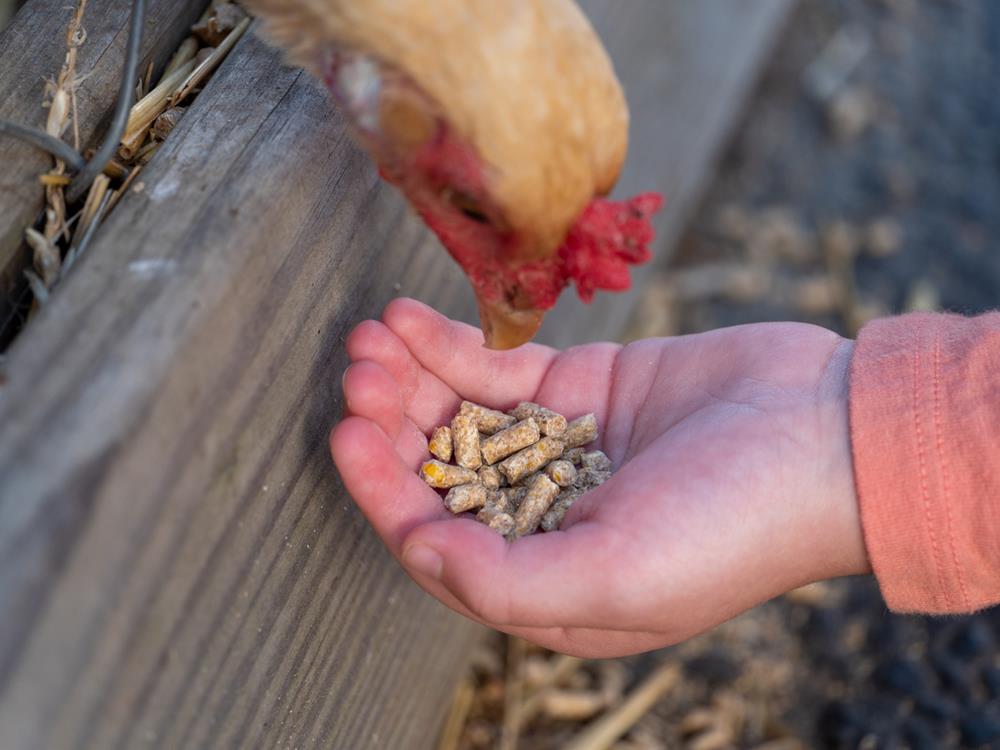
Whole grains like wheat, corn, oats, and barley are excellent options when feed runs low. Chickens can eat these grains raw, sprouted, or cooked. Sunflower seeds, millet, and cracked corn are also great additions to their diet.
How to Prepare Grains for Chickens:
- Raw Grains: Scatter them on the ground to encourage natural foraging.
- Cooked Grains: Cook them lightly to make them easier to digest, especially for younger or older chickens.
- Sprouted Grains: Sprouting grains like wheat and barley increases their nutritional value, making them easier for chickens to digest. Soak the grains in water for 24 hours, then rinse daily until they sprout. In a few days, you'll have a fresh, nutrient-rich treat for your flock.
While grains are a valuable part of their diet, they should make up no more than 30% of your chickens' food intake. Balance is key to ensure your flock gets enough protein, calcium, and other essential nutrients.
Protein-Rich Alternatives
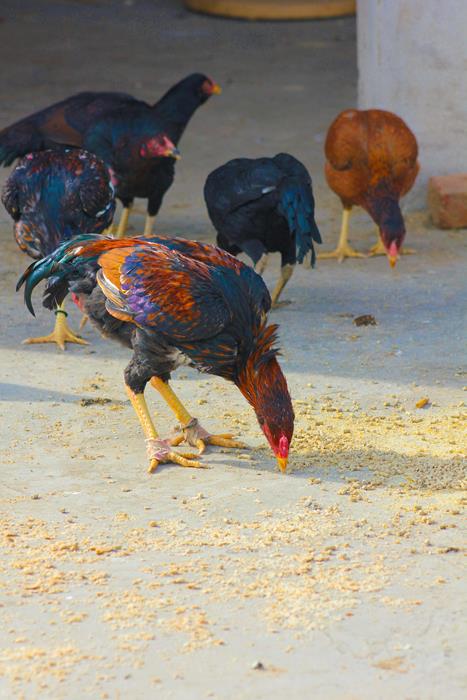
Protein is crucial for your chickens' health, especially during molting or for egg production. When commercial feed isn't available, try these alternatives:
- Mealworms: Available dried or fresh, they're a protein powerhouse. Raising your own mealworms is an easy, cost-effective option.
- Cooked Eggs: Packed with amino acids and easy to prepare. Crush the shells and mix them with the eggs for an extra calcium boost.
- Yogurt: Offers both protein and probiotics for gut health. Use unsweetened varieties for the best results.
- Legumes: Cooked beans, peas, and lentils are excellent sources. Avoid raw legumes, which can contain harmful compounds.
- Fish: Canned tuna or sardines (in water, not oil) are great options. Fresh fish scraps also work well.
When introducing new protein sources, start small to ensure your flock adjusts well. Rotate options to provide variety and avoid dependency on a single source.
Garden Waste
Your garden can double as a food source for your chickens. Weeds, grass clippings, and vegetable tops are all fair game. However, make sure to avoid plants that are toxic to chickens, like nightshade varieties (e.g., tomato leaves, potato peels).
Grow Your Own Feed:
- Plant leafy greens like spinach, lettuce, and kale. These grow quickly and can be harvested regularly.
- Grow root vegetables like beets or carrots. The tops and trimmings are great for chickens.
- Incorporate a chicken tractor system to let your flock graze on garden plots. This method not only feeds your chickens but also fertilizes the soil.
Introduce new garden scraps gradually to prevent digestive upset, and ensure everything is fresh and free of pesticides or chemicals.
Fermented Feeds for Better Nutrition
Fermented feeds are a fantastic way to stretch resources while boosting your chickens' gut health. Fermentation improves digestibility and increases the bioavailability of nutrients.
How to Ferment Feed:
- Place grains or chopped vegetables in a clean container.
- Cover with water and let sit at room temperature for 2-3 days.
- Stir daily and add water as needed to keep the contents submerged.
- Once it smells slightly sour, it's ready to feed.
Fermented feeds are nutrient-dense and easy to prepare, making them a great option during shortages.
Benefits of Fermented Feeds:
- Improves gut health through probiotics.
- Reduces feed waste by making nutrients more accessible.
- Enhances egg production and feather quality.
Compost Pile Feeding Strategy
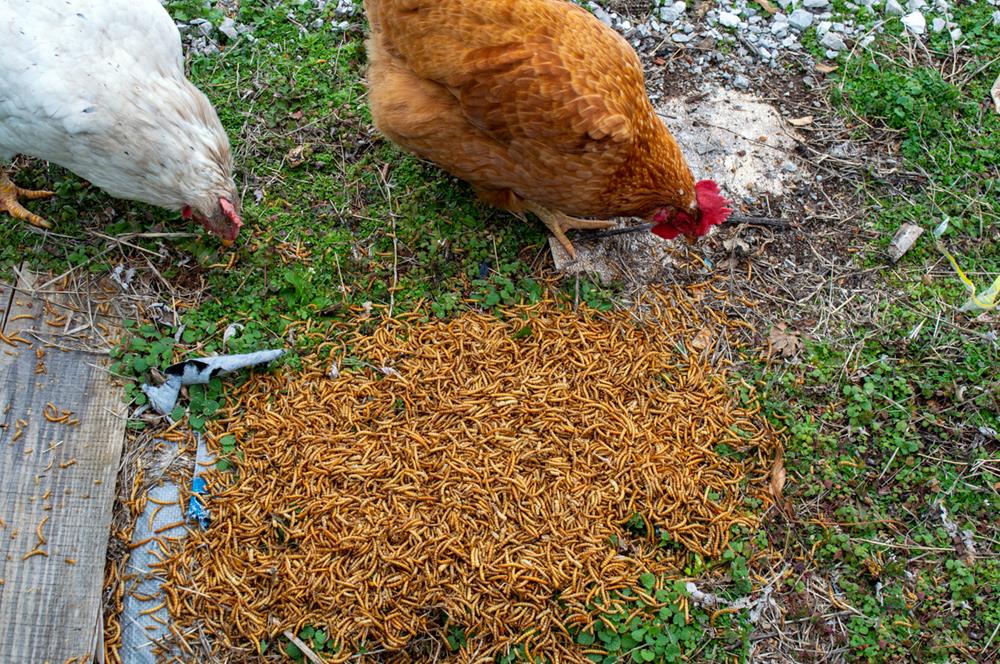
A well-maintained compost pile can be a goldmine for your chickens. As they scratch and dig, they'll uncover insects, worms, and decomposing plant matter.
Managing a Compost Pile:
- Add vegetable scraps, coffee grounds, and yard waste. Avoid meat, dairy, and anything moldy.
- Let your chickens turn the pile for you—their natural behavior helps aerate the compost.
- Monitor the pile to ensure no harmful items, like plastics or toxins, make their way in.
This symbiotic relationship benefits both your flock and your garden, creating a sustainable feeding system.
Local Food Waste Resources
When resources are scarce, tap into your community. Grocery stores often discard produce that's past its prime but still safe for chickens. Farmers' markets and bakeries may also have scraps to spare.
Tips for Using Food Waste:
- Inspect everything for mold or spoilage before feeding.
- Avoid citrus, onions, and overly salty or sugary items.
- Create partnerships with local businesses for a consistent supply.
By building local partnerships, you'll not only feed your flock but also contribute to reducing food waste in your community.
Conclusion
Running out of chicken feed doesn't have to spell disaster. With a little creativity and resourcefulness, you can provide your flock with a balanced diet using what you already have at home or in your backyard. From kitchen scraps and foraging to sprouted grains and fermented feeds, the options are plentiful.
By planning ahead and incorporating sustainable practices, like composting and gardening, you can ensure your chickens stay healthy and productive no matter the circumstances. So, next time your feed bin is empty, remember: the solution might be closer than you think.

